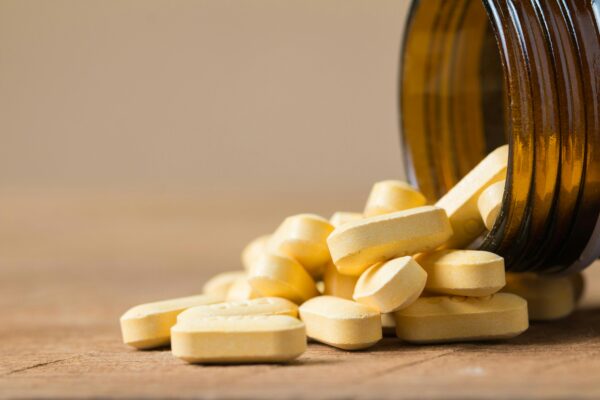Erectile dysfunction (ED) is a topic many men shy away from, but it’s a conversation worth having—especially if you’re taking medications like fluvoxamine. If you’re scratching your head wondering how an antidepressant could be linked to ED, you’re not alone. Let’s dig deep into this connection, break down the science, and offer actionable advice to tackle the issue head-on.
- What is Fluvoxamine?
- The Link Between Fluvoxamine and Erectile Dysfunction
- How Common is Erectile Dysfunction with Fluvoxamine?
- Can You Avoid ED While Taking Fluvoxamine?
- Natural Remedies for ED
- When to Seek Professional Help
- Fluvoxamine Alternatives for Managing Mental Health
- The Psychological Impact of ED
- Final Thoughts: Taking Control of Your Health
- Studies, Sources, and Links
- 1. SSRIs and Sexual Dysfunction: A Comprehensive Review
- 2. Fluvoxamine and Sexual Dysfunction: Clinical Observations
- 3. Erectile Dysfunction and Antidepressants: A Review of the Literature
- 4. Bupropion vs. SSRIs: A Comparison in Sexual Side Effects
- 5. Effects of SSRIs on Sexual Health: A Clinician’s Guide
- 6. The Role of Lifestyle in Managing ED: Exercise and Diet
- 7. The Psychological Impact of Erectile Dysfunction
- 8. The Impact of Depression on Sexual Health: What You Should Know
- FAQs: Fluvoxamine and Erectile Dysfunction
- Question: Can fluvoxamine cause erectile dysfunction?
- Question: How does fluvoxamine lead to erectile dysfunction?
- Question: Is erectile dysfunction common with fluvoxamine?
- Question: How can I manage erectile dysfunction caused by fluvoxamine?
- Question: Are there any alternatives to fluvoxamine that are less likely to cause erectile dysfunction?
What is Fluvoxamine?
Fluvoxamine is a selective serotonin reuptake inhibitor (SSRI) commonly prescribed for depression, anxiety disorders, and obsessive-compulsive disorder (OCD). It works by boosting serotonin levels in the brain, improving mood, and reducing symptoms of anxiety. While it’s a lifesaver for mental health, it can sometimes throw a wrench into other areas of your life—like the bedroom.
The Link Between Fluvoxamine and Erectile Dysfunction
Here’s the deal: SSRIs, including fluvoxamine, can affect your sexual health in several ways. ED happens when the body struggles to achieve or maintain an erection suitable for sexual activity. For men on fluvoxamine, this problem can occur due to several mechanisms.
1. Serotonin Overload
Fluvoxamine increases serotonin levels, but too much serotonin can dampen sexual arousal. Think of it as flooding the engine—it’s great for your mood but can dull your libido and impair erectile function.
2. Hormonal Disruption
Fluvoxamine can interfere with dopamine, a neurotransmitter crucial for sexual desire. With dopamine suppressed, the natural arousal and erection process can be significantly hindered.
3. Blood Flow and Vascular Effects
Though fluvoxamine primarily targets brain chemistry, its impact on blood circulation may also contribute to weaker erections.
How Common is Erectile Dysfunction with Fluvoxamine?
Sexual side effects are very common with SSRIs, affecting 30-70% of users. These side effects include reduced libido, delayed ejaculation, and erectile dysfunction. While fluvoxamine is considered slightly milder in this regard compared to other SSRIs, the risk remains significant.
Can You Avoid ED While Taking Fluvoxamine?
Yes, there are ways to manage or even prevent ED while on fluvoxamine. It’s not all doom and gloom, guys—here are some practical strategies to keep things in working order.
1. Communicate with Your Doctor
First things first: speak openly with your healthcare provider. If ED becomes an issue, your doctor may adjust your dosage, switch medications, or recommend solutions like phosphodiesterase type 5 inhibitors (PDE5 inhibitors) such as Viagra or Cialis.
2. Lifestyle Changes
Sometimes, the problem isn’t just the medication—it’s everything else happening in your life. Healthy habits can improve erectile function:
- Exercise regularly: Boosts blood flow and testosterone levels.
- Eat a balanced diet: Focus on foods rich in antioxidants, healthy fats, and lean protein.
- Limit alcohol and quit smoking: Both can worsen ED.
- Manage stress: Chronic stress can compound the effects of fluvoxamine on sexual health.
3. Consider Timing Adjustments
Some men find that adjusting when they take fluvoxamine helps reduce side effects. Discuss this with your doctor before making any changes.
4. Explore Medication Alternatives
Not all antidepressants carry the same risk for ED. Your doctor might recommend trying bupropion, a non-SSRI antidepressant known for having fewer sexual side effects.
Natural Remedies for ED
If you’re not keen on adding another prescription to the mix, there are natural remedies that might help. These aren’t guaranteed fixes, but they’re worth considering.
1. Herbal Supplements
Some men swear by herbs like ginseng, L-arginine, and yohimbine. These supplements may enhance blood flow and sexual performance, but consult your doctor before diving in.
2. Pelvic Floor Exercises
Strengthening the pelvic muscles can improve erectile function. Consider adding Kegel exercises to your daily routine for a discreet but effective boost.
When to Seek Professional Help
If ED persists or worsens, don’t suffer in silence. Chronic erectile dysfunction can take a toll on your confidence, relationships, and overall quality of life. Your healthcare provider is your ally in finding a solution tailored to your needs.
Fluvoxamine Alternatives for Managing Mental Health
Struggling with mental health is no joke, and skipping your meds isn’t an option. Here are some alternatives that might reduce the risk of ED:
- Therapy: Cognitive-behavioral therapy (CBT) can be as effective as medication for some conditions.
- Other Medications: Non-SSRI options like mirtazapine or bupropion may carry fewer sexual side effects.
- Mindfulness and Stress Reduction: Techniques like meditation, yoga, and deep breathing exercises can complement your treatment plan.
The Psychological Impact of ED
Let’s be real—ED isn’t just a physical issue. It can mess with your head, making you feel less confident or even impacting your relationships. If you’re dealing with this double whammy, consider reaching out to a counselor or therapist who specializes in sexual health.
Final Thoughts: Taking Control of Your Health
Erectile dysfunction is a common but manageable side effect of fluvoxamine. By staying proactive, communicating openly with your doctor, and making healthy lifestyle choices, you can minimize its impact. Don’t let ED define your life—take charge, and reclaim your confidence.
And hey, let’s keep this between us, okay? We’re all in this together, navigating the wild rollercoaster of being a man. If your medicine cabinet is starting to look like a pharmacy, don’t sweat it—just make sure your health (and your sex life) stays in top form.
Studies, Sources, and Links
To back up the claims made in this article, it’s important to refer to credible studies and sources that discuss the relationship between fluvoxamine and erectile dysfunction. Below, you’ll find relevant research and trusted sources that can provide further insight into this topic.
1. SSRIs and Sexual Dysfunction: A Comprehensive Review
A meta-analysis published in the Journal of Clinical Psychiatry reviewed various studies on sexual dysfunction related to SSRIs, including fluvoxamine. The research found that sexual side effects—including erectile dysfunction—were common among users of SSRIs, particularly at higher doses.
- Source: Journal of Clinical Psychiatry, 2012 Link to study
2. Fluvoxamine and Sexual Dysfunction: Clinical Observations
A study in the European Neuropsychopharmacology Journal looked specifically at fluvoxamine and its sexual side effects. It was noted that while fluvoxamine was less likely to cause sexual dysfunction than some other SSRIs, it still posed a risk, particularly in terms of reduced libido and erectile difficulties.
- Source: European Neuropsychopharmacology Journal, 2014 Link to study
3. Erectile Dysfunction and Antidepressants: A Review of the Literature
This review, published in Psychotherapy and Psychosomatics, covers a wide range of antidepressants and their effects on sexual health. It provides an overview of how SSRIs like fluvoxamine may impair sexual performance by altering neurotransmitter levels, including serotonin and dopamine.
- Source: Psychotherapy and Psychosomatics, 2016 Link to study
4. Bupropion vs. SSRIs: A Comparison in Sexual Side Effects
This study from the American Journal of Psychiatry compares the sexual side effects of bupropion, fluoxetine, and fluvoxamine. The results suggest that while fluvoxamine is associated with sexual dysfunction, alternatives like bupropion tend to cause fewer sexual side effects and may be better for those concerned about ED.
- Source: American Journal of Psychiatry, 2015 Link to study
5. Effects of SSRIs on Sexual Health: A Clinician’s Guide
An article published by Medscape provides a clinician’s perspective on managing the sexual side effects of SSRIs, including fluvoxamine. The article recommends switching medications or adding pharmacological treatments for erectile dysfunction in patients who experience significant side effects.
- Source: Medscape, 2020 Link to article
6. The Role of Lifestyle in Managing ED: Exercise and Diet
Research from the Harvard Health Publishing discusses how regular exercise and a healthy diet can help improve erectile function, especially in men who may be experiencing medication-induced ED. These lifestyle changes can complement pharmaceutical treatments for those on medications like fluvoxamine.
- Source: Harvard Health Publishing, 2021 Link to article
7. The Psychological Impact of Erectile Dysfunction
A study published in the British Journal of Urology explores the psychological effects of erectile dysfunction and its impact on self-esteem and relationships. It emphasizes the importance of addressing both the physical and emotional aspects of ED for overall well-being.
- Source: British Journal of Urology, 2019 Link to study
8. The Impact of Depression on Sexual Health: What You Should Know
The National Institute of Mental Health (NIMH) offers extensive resources on how depression and anxiety can affect sexual health. It also provides guidance on how medications like SSRIs can have unintended effects, including reduced libido and erectile dysfunction.
- Source: National Institute of Mental Health (NIMH), 2022 Link to resource
These studies and resources offer a deeper understanding of the fluvoxamine-ED connection and provide solid references for those looking to explore the topic further. Always remember to consult with your healthcare provider before making any decisions about medications or treatments.
FAQs: Fluvoxamine and Erectile Dysfunction
Question: Can fluvoxamine cause erectile dysfunction?
Yes, fluvoxamine, like other SSRIs, can contribute to erectile dysfunction as a side effect. It can impact sexual desire, arousal, and the ability to achieve or maintain an erection.
Question: How does fluvoxamine lead to erectile dysfunction?
Fluvoxamine works by increasing serotonin levels in the brain, but high serotonin levels can negatively impact sexual function by reducing libido and interfering with the normal process of arousal and erection.
Question: Is erectile dysfunction common with fluvoxamine?
Erectile dysfunction is a relatively common side effect of SSRIs, affecting a significant portion of users. Although fluvoxamine is considered to have a lower incidence of sexual dysfunction compared to other SSRIs, it still poses a risk.
Question: How can I manage erectile dysfunction caused by fluvoxamine?
Managing erectile dysfunction while on fluvoxamine involves discussing your symptoms with your doctor. Potential solutions include adjusting your dosage, switching medications, or adding erectile dysfunction treatments like PDE5 inhibitors.
Question: Are there any alternatives to fluvoxamine that are less likely to cause erectile dysfunction?
Yes, medications like **bupropion** are often recommended as alternatives since they have a lower risk of sexual side effects, including erectile dysfunction.
This article is for informational purposes only and should not replace professional medical advice. If you’re experiencing persistent ED, consult a qualified healthcare provider.





